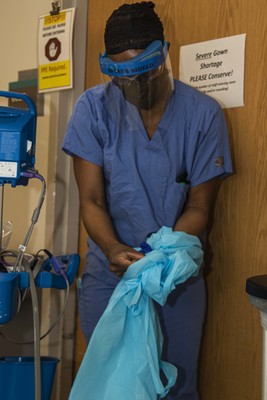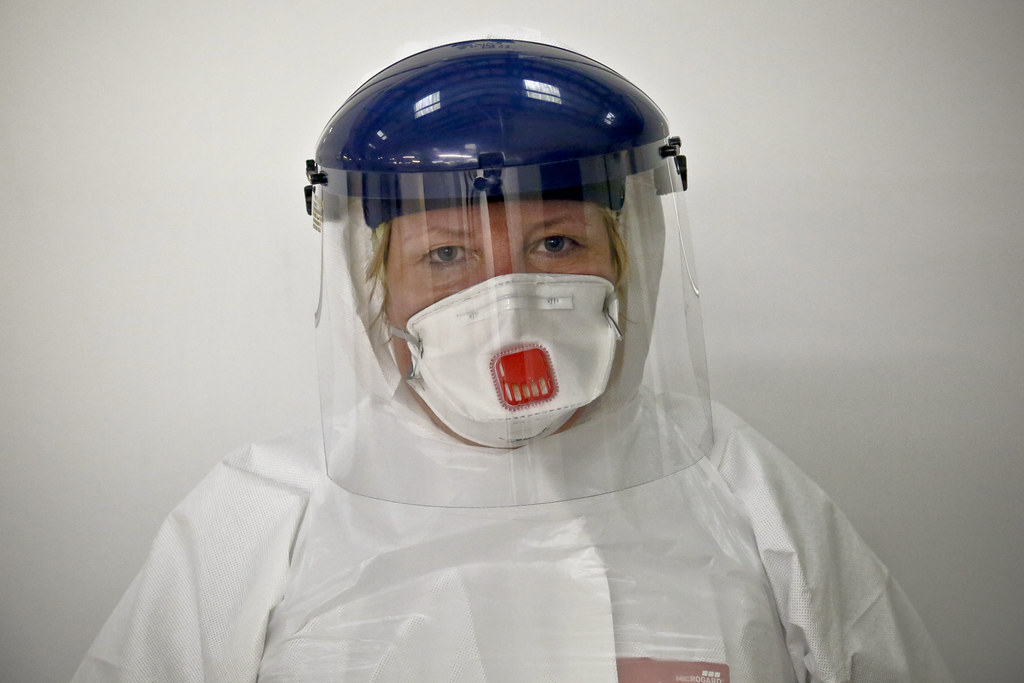COVID-19 in the Fight Against Plastic Waste
In all of the uncertainty that hovers in the foreground of our current social, economic and environmental climates, there is one thing that is certain; our world is changed, and the ramifications of such change are going to be significant.
The COVID-19 pandemic has affected such climates to exponential degrees, in particular the environment. There have been some positives, such as how carbon emissions in China have declined 25%, however the negatives are high in number, and very serious. From face masks washing up on beaches in Hong Kong to hospitals in Wuhan generating six times as much medical waste at the peak of the outbreak as they did before the crisis began, the environmental repercussions have already started to take effect, and will progressively become more staggering. In particular, the plastic and medical waste that is being produced by hospitals is an area where the lines between bad for the environment and very necessary for our health and safety are blurred, and it is not a problem that can easily be solved.
Before the COVID-19 pandemic, the generation of plastic and medical waste coming out of hospitals was already something that had been under scrutiny. In 2019, National Geographic investigated if medical care could exist without plastic, and revealed that within hospitals, the amount of plastic waste is 25% of the total waste produced. The article concluded stating that no hospital could be truly zero-waste, but that plastic waste was something they could work on in the future.
The notion of being able to work on the amount of plastic and medical waste being produced, however, has come to screeching halt in our current pandemic-stricken world. Due to the safety of nurses and doctors alike, there has been an increased use of personal protective equipment, such as gowns and face masks and general plastic use.

According to Forbes, the COVID-19 pandemic has also shut down many recycling initiatives that some airlines and other corporations had in place due to maintaining the safety of frontline workers. General recyclables are now being disposed of in the traditional waste processes of landfill and incineration, alongside medical waste. COVID-19 is classified as a Category B Infectious Substance, meaning it is defined as an infectious substance that is not in a form generally capable of causing permanent disability or life-threatening or fatal disease, however, this does mean that it is disposed of the same way as hazardous waste. The waste from hospitals, therefore, including coronavirus test samples, biohazardous COVID-19 waste and PPE (gloves, masks, gowns; sharps, glassware, or any materials that have come in contact with coronavirus) must be shipped by qualified haulers and managed at permitted hazardous waste facilities.
According to WHO, 85% of medical waste incinerated is general, non-hazardous waste while 15% is considered biohazardous. Incineration is considered to be the most effective way of disposing of the virus, which poses its own threats, as WHO reported that incineration can, under some circumstances, result in the emission of dioxins, furans and particulate matter. This report, however, was released in 2018, and while it proposed ways of moving forward, these efforts have become inapplicable in the COVID-19 pandemic climate, as now the health and safety of sanitation workers, nurses and other frontline essential workers is paramount.
General rubbish bin waste has also become an area for concern, and because of the threat of the virus, is being treated as and can be disposed of in the same way medical waste is, which means either landfill or incineration. General waste from cafes to people’s homes now may not be being treated as they were pre-COVID-19, from both the general public and those who work in rubbish and recycling facilities, hence recycling efforts are significantly damaged. The amount of waste grows as the pandemic grows, as the main challenge is now is making sure that garbage is safe and contained.
According to a March 19th technical brief from the WHO, ‘There is no evidence that direct, unprotected human contact during the handling of health care waste has resulted in the transmission of the COVID-19 virus.’ While this is the best possible outcome for our essential care workers and the spread of the virus, there is no doubt that COVID-19 and the resulting economic crisis has strained local and national waste operations.

There is blurred lines when it comes to the production and disposal of waste, both from hospitals but even from our own homes, the health of the population and the wellbeing of the environmental climate. For the time being, the use of plastic, the disposal of waste through landfill and incineration and the suspension of some recyclable initiatives are necessary. The next necessary step will be to assess the damage, and not to forget what was important in the pre-COVID-19 pandemic world; that for humans to survive, so must the environment.
The 2020 Sydney University Student Anthology is now open for submissions on the topic of climate change, so send us your artworks, poetry, short fiction and non-fiction. Submit here.
 Previous Post
Previous Post Next Post
Next Post